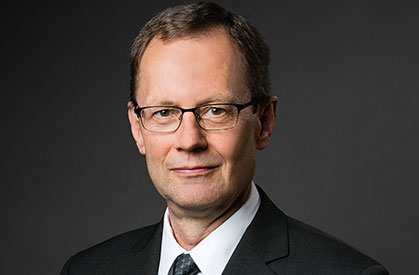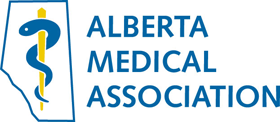PCC fee review and leading change
October 16, 2015

Dear Member:
The Board of Directors meets October 29-30. One of the major agenda items will be review of the outcomes of the September 25-26 Representative Forum (RF).
If you attended the RF, or as you may have heard from colleagues, delegates conducted in-camera sessions for a candid discussion of the fee review currently underway at the AMA-AH Physician Compensation Committee (PCC).
The PCC fee review: What it is and why it is being done
There has long been agreement in the profession that the fee schedule must be modernized to reflect current medical practice. When there are changes in medical practice due to technology, efficiencies, or new ways of practicing, new fee codes are created. This same reason requires periodic adjustment of existing codes.
In the past, the (former) government made efforts to unilaterally reduce a group of fees that they thought required adjustment. The AMA rejected that idea. Fee relativity and modernizing the fee schedule are important, but must be done in a structured manner with best evidence, using as objective a process as possible, and with input from those who are affected. We also took the position that relative fee adjustments must respect agreed to overall increases and be on a fee neutral basis, i.e., not used to achieve budget savings.
The PCC was created under our current contract with the government to allow AMA and AH input into compensation matters. It has authority over the relative fees paid for physician services, i.e., all decisions are on a fee neutral basis so if one fee is reduced, another has to be increased. It is comprised of representatives of the government and the AMA with an independent chair agreed to by the parties. Each of the AMA, AH and the chair have a single vote in making decisions.
An initial, small-scale fee review was identified as part of the overall effort to modernize and improve relativity within the schedule. Through a filtering process 22 codes were initially identified as being outliers, i.e., there was some objective reason to believe that the fees were significantly high compared to other fees. With additional analysis and in discussion with the sections that own the respective codes, the list for further analysis was reduced to six.
In late August, the PCC released a preliminary decision regarding proposed adjustments to those six codes. The affected sections and others raised significant concerns to the PCC, the Board of Directors, at RF and in other correspondence and meetings.
What are the concerns?
There have been a number of issues raised, which is perhaps not too surprising given that the process is new. The board is reviewing all concerns, but I want to comment on three to give a sense of the discussion.
- The sections affected by the fee review raised issues of transparency and good process. Concerns were expressed that information they brought to the PCC was not sufficiently considered, and that explanations as to why were not provided.
- There are major overhead components to the six fees under review. The parent sections noted that the Business Costs Model that AH and AMA jointly developed five years ago (which we have used for subsequent allocations) is due for a major update; that update is one of the PCCs current tasks. In the interim, however, the sections felt there were major underestimations in overhead calculation. The challenge is reconciling the different views and ways of calculating overhead, and the relationship between global overhead and the amount attached to a single procedure.
- Other physicians, while supportive of improved process and good communication, noted that there was some urgency in getting on with fee relativity and modernization of the Schedule of Medical Benefits (SOMB).
The AMA response
These are extremely important matters. Every member has a right to transparency and due process from the AMA. We must consider not only the needs of constituent groups, but also of the profession as a whole.
The PCC is a joint effort. No one party controls what happens there, but it is certainly better than imposition as has happened in some other provinces.
The board has striven to be transparent since PCC began. There have been presentations at the RF and the board itself meets with our AMA representatives to the committee. We agree that there is room for improvement and we are always willing to discuss how we can serve members better, including in the next phase of this initial fee review.
What happens next at PCC
The relevant sections are still engaged in ongoing discussions with the PCC regarding the proposed fee code adjustments. The next phase of the fee review by PCC will discuss the following:
- The impact that the affected sections anticipate the proposed changes will have on access and service delivery.
- The timeframe that they believe would be reasonable for implementation, if and when a final fee adjustment value has been determined.
- The significant impacts these preliminary decision valuations could have on relative valuations with other codes.
- Other information of which the PCC should be aware prior to making a final decision.
The meetings with the affected sections will furnish opportunity to clarify questions raised by the RF and decide on process improvements. PCC hopes to have a final decision by late December.
The Board of Directors will be discussing all these matters at our upcoming meeting. We will be reporting back to the RF and yourselves on our discussions.
Standing together
There has long been general support in the profession for fee review and the move towards relativity. This will require a fee schedule that better reflects the way care is delivered today while developing future opportunities. We acknowledge and understand the concerns about data and process and we will be advocating at PCC for improvements.
I understand from meetings, emails and conversations that these events have caused apprehension among our colleagues. It’s understandable and useful that individuals and groups have strong views; these help us refine processes and get to the truth. However, the manner in which opinions are expressed and resolved, and how we move together after decisions are made, can be either divisive or unifying. Because of the independent nature of the PCC, I cannot promise outcome, but I can and will push for better process.
I ask for three things as we work through issues together.
First, I ask for patience. I will provide periodic updates as needed. Please feel free to communicate with me anytime.
Second, I ask for unity. This has always been and always will be a strength for our profession. Compassion for our colleagues, seeing things from their perspective, and respectful communications will build this.
Third, I ask for leadership. During our last round of negotiations, we talked a lot about the profession’s willingness to show leadership and to do some difficult things to improve the system for patients. We are now taking some of the most visible first steps, and success is vital.
We emerged from the RF with strong support for unity, founded on a commitment to work together through fair and open processes as we move forward. I thank you for that. I will do my utmost to lead and support what needs to be done.
I look forward to your comments. Please email me at president@albertadoctors.org or leave a comment below.
Kind regards,
Carl W. Nohr, MDCM, PhD, FRCSC, FACS
President

No comments
Commenting on this page is closed.